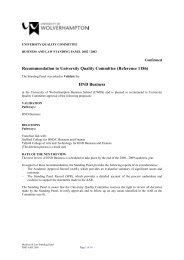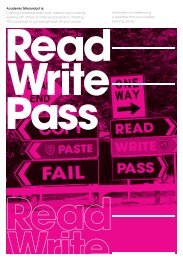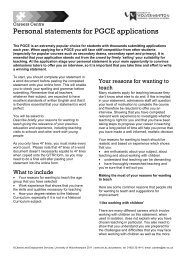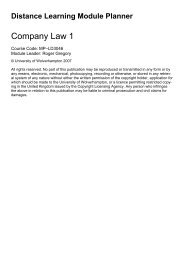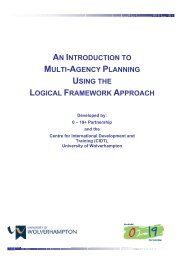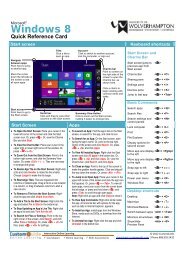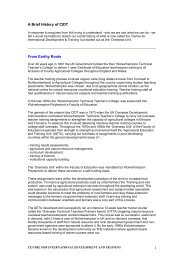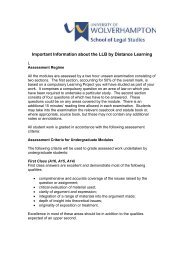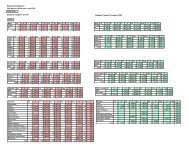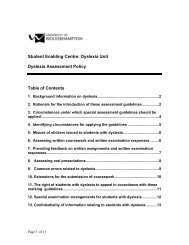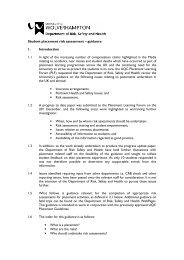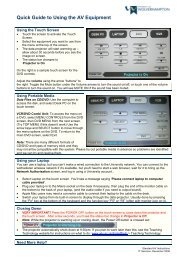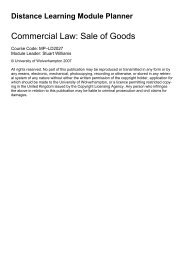Chapter 17
Chapter 17
Chapter 17
Create successful ePaper yourself
Turn your PDF publications into a flip-book with our unique Google optimized e-Paper software.
CHAPTER <strong>17</strong>
Ñåìíàäöàòàÿ ãëàâà<br />
CHAPTER SEVENTEEN - ÑÅÌÍÀÄÖÀÒÀß ÃËÀÂÀ<br />
BON VOYAGE! - Ñ×ÀÑÒËÈÂÎÃÎ ÏÓÒÈ!<br />
In <strong>Chapter</strong> Seventeen you will learn how to do the following:<br />
1. to express the time of the day (a.m. / p.m.)<br />
2. to tell the time more precisely<br />
3. to understand train and plane timetables<br />
4. to request and give information about travel<br />
You will learn the following points of grammar:<br />
1. reflexive verbs<br />
2. numerals in oblique cases<br />
3. unidirectional and multidirectional verbs of motion<br />
4. compound verbs of motion<br />
Activity One - Ïåðâîå çàäàíèå<br />
Listening Listen to the dialogues and tick in the table below if the time of day<br />
mentioned in each case is a.m. or p.m.<br />
1<br />
2<br />
3<br />
4<br />
5<br />
6<br />
a.m.<br />
p.m.<br />
Note: the 24-hour clock is often used in contexts such as rail and flight times, the radio, television, films<br />
etc.; e.g. 20 xfcjd = 8 p.m. If a specific time is mentioned, use the Genitive case of the day; e.g. 8 xfcjd<br />
enhf - 8 a.m., 8 xfcjd dtxthf - 8 p.m. In Russian the day is broken down as follows:<br />
1, 2, 3 xfcf yóxb 1, 2, 3 o’clock at night<br />
4 xfcf > 11xfcjd enhá 4 to 11 o’clock in the morning<br />
12 xfcjd > 4 xfcf lyz 12 to 4 o’clock in the afternoon<br />
5 xfcjd > 12 xfcjd déxthf 5 to 12 o’clock in the evening<br />
Remember to use the forms enhjv^ ly/v^ dtxthjv^ yjxm. if a specific time is not mentioned.<br />
jnghfdkznmcz (I) / to depart, leave, set off 'ktrnhbxrf local train<br />
jnghfdbnmcz (jnghfdk.cm^ (for / to)<br />
jnghfdbimcz) yf (+ acc)<br />
316<br />
S azov (Russian from Scratch)
Activity Two - Âòîðîå çàäàíèå<br />
Reading/Writing Read the train timetable given below and indicate whether the<br />
following statements are True (G) or False (Y). Where you have put Y write out the correct<br />
version in Russian. The first one is done for you.<br />
HFCGBCFYBT LDB:TYBZ GJTPLJD<br />
GJTPL gjy& dn& ch& xn& gzny& ce,& djcrh& gkfnajhvf<br />
Vjcrdf - 6. 00 - 23. 00 - 12. 00 6. 00 6. 00 1<br />
C&-Gtnth,ehu<br />
Vjcrdf - - 5. 00 - 5. 00 - 9. 00 - 5<br />
Rbtd<br />
Vjcrdf - 9. 00 - - - 24. 00 - - 3<br />
Hbuf<br />
Vjcrdf - 01. 00 - 15. 00 - - - - 2<br />
REFLEXIVE VERBS<br />
Ñåìíàäöàòàÿ ãëàâà<br />
You have already met reflexive verbs in <strong>Chapter</strong> Nine and <strong>Chapter</strong> Fifteen, in particular. You learned how<br />
to conjugate them and how to form the past tense. Some common verbs only have a reflexive form; e.g.<br />
yhfdbnmcz^ pljhjdfnmcz^ cvtznmcz^ eks,fnmcz&<br />
Many other verbs have reflexive and non-reflexive forms; e.g. jnghfdkznm/jnghfdkznmcz^ pfrhsdfnm/<br />
pfrhsdfnmcz^ jnrhsdfnm/jnrhsdfnmcz^ etc. The particle -ñÿ changes a transitive verb (one which<br />
takes a direct object) into an intransitive verb (which does not take a direct object).<br />
Compare: z jnrhsk(f) ldthm I opened the door (transitive)<br />
ldthm jnrhskfcm the door opened (intransitive)<br />
For more details on the uses of reflexive verbs see the Grammar section.<br />
Activity Four - ×åòâ¸ðòîå çàäàíèå<br />
Reading/Speaking Read the following text and fill in the gaps, choosing the<br />
appropriate form of a reflexive or non-reflexive verb from the box below.<br />
jnrhsdfnm/jnrhsdfnmcz<br />
pfrhsdfnm/pfrhsdfnmcz<br />
yfxbyfnm/yfxbyfnmcz<br />
pfrfyxbdfnm/pfrfyxbdfnmcz<br />
×òî êîãäà ðàáîòàåò â Ìîñêâå<br />
Activity Five - Ïÿòîå çàäàíèå<br />
Reading/Speaking Read the following newspaper cuttings which advertise various<br />
services and then answer in Russian the questions which accompany each advertisement.<br />
Use the vocabulary list at the foot of the page to help you.<br />
To read the opening times in each advertisement you will need to know the Genitive case of numerals<br />
after the prepositions c (from) and lj (until). For all numerals ending in -ü simply remove the soft sign<br />
and replace it with -b; e.g. gznm xfcjd - c gznb xfcjd (from five o’clock), ldtyflwfnm xfcjd - lj<br />
ldtyflwfnb xfcjd (until twelve o’clock). The Genitive forms of jlby^ ldf^ nhb and xtnsht are as<br />
follows: jlyjuj^ lde[^ nh/[ and xtnsh/[. In the phrase ‘from one o’clock’ the numeral is usually<br />
omitted in colloquial Russian; e.g. c xáce& For more details on numerals in oblique cases see the Grammar<br />
section.<br />
<strong>Chapter</strong> <strong>17</strong><br />
I. WTYNH UJVTJGFNBXTCRJQ<br />
VTLBWBYS<br />
1& Xnj htrkfvbhetncz d ýnjv<br />
j,]zdktybb$<br />
2& D rfrjv ujhjlt yf[jlbncz<br />
wtynh$<br />
3& Rjulf jy jnrhsdftncz b<br />
pfrhsdftncz gj hf,jxbv lyzv$<br />
4& Rjulf jy jnrhsdftncz b<br />
pfrhsdftncz gj ce,,jnfv$<br />
II. "KTRNHJYBRF ABHVS SONY<br />
1& Rfrbt njdfhs htrkfvbhetn<br />
'njn vfufpby$<br />
2& Ult jy hfcgjkj;ty$<br />
3& Rjulf jy jnrhsdftncz b<br />
pfrhsdftncz$<br />
4& Rjulf vfufpby pfrhsdftncz yf<br />
j,tl$<br />
5& Gj rfrbv lyzv jy hf,jnftn$<br />
III. WTYNH FYUKBQCRJUJ ZPSRFòð<br />
1& Xnj htrkfvbhetncz d 'njv<br />
j,]zdktybb$<br />
2& Rfr vj;yj gjkexbnm<br />
byajhvfwb.$<br />
3& Gj rfrbv lyzv hf,jnftn<br />
'njn wtynh$<br />
4& Rjulf jy jnrhsdftncz b<br />
pfrhsdftncz$<br />
5& Rjulf yfxbyftncz b<br />
pfrfyxbdftncz gththsd yf j,tl$<br />
ujvtjgfnbxtcrbt homeopathic cures 'ktrnhjybrf electrical appliances<br />
ghtgfhfgns abhvtyysq vfufpby shop (selling only one brand<br />
htrkfvbhjdfnm(cz) (III) to (be) advertize(d) of goods)<br />
(htrkfvbhe.(cm)^ ds[jlyjq; ds[jlyst day off; weekend<br />
htrkfvbhetim(cz)) gj rfrbv lyzv &&&$ on which days …<br />
j,]zdktybt advertisement gththsd yf j,tl lunch break<br />
njdfhs goods c &&& gj (gznybwe) from ... (through) to (Friday)<br />
A new ab initio Russian course<br />
319
How to tell the time more precisely<br />
Ñåìíàäöàòàÿ ãëàâà<br />
1. In the first half-hour after the full hour, the time is expressed in Russian as ‘five, ten, fifteen minutes’<br />
etc. of the next hour; e.g. gznm vbyen dnjhjuj - five past one (literally: ‘five minutes of the second’).<br />
Note that the ordinal numeral in the Genitive case is used for the hour:<br />
jlyf vbyenf<br />
ldt vbyens<br />
gznm vbyen<br />
ltcznm vbyen<br />
gznyflwfnm vbyen/xtndthnm<br />
ldflwfnm vbyen<br />
ldflwfnm gznm (vbyen)<br />
gjkjdbyf<br />
dnjhjuj<br />
one<br />
two<br />
five<br />
ten<br />
fifteen/quarter past<br />
twenty<br />
twenty-five<br />
half<br />
one<br />
2. In the second half-hour after the full hour, the time is expressed as ‘without five, ten, fifteen minutes’<br />
etc. one, two, three (o'clock) etc.; e.g. ,tp gznb ldf - five to two (literally, ‘without five minutes<br />
two’). Note that the cardinal numeral in the Nominative case is used for the hour:<br />
,tp ldflwfnb gznb (vbyen)<br />
twenty-five (minutes) to<br />
,tp ldflwfnb (vbyen)<br />
twenty (minutes) to<br />
,tp gznyflwfnb/,tp xtndthnb<br />
quarter to<br />
,tp ltcznb (vbyen) ldf ten (minutes) to two<br />
,tp gznb (vbyen)<br />
five (minutes) to<br />
,tp lde[ vbyen<br />
two minutes to<br />
,tp jlyjq vbyens<br />
one minute to<br />
Note:<br />
a) in colloquial Russian gjkjdbyf is often replaced by gjk-; e.g. gjkdnjhjuj^ gjknhtnmtuj<br />
b) vbyen may be omitted in ldflwfnm gznm (vbyen) dnjhjuj; in other phrases vbyens/vbyen must<br />
be included; e.g. ldflwfnm xtnsht vbyens dnjhjuj; ltcznm vbyen dnjhjuj<br />
c) to answer the question rjulf &&&$ simply add d at the beginning of the phrase which indicates the time<br />
between the hour and half hour; e.g. d ltcznm vbyen dnjhjuj - at ten past one. Do not forget to use<br />
gjkjdbyf in the Prepositional case; e.g. d gjkjdbyt dnjhjuj - at half past one (but d gjkdnjhjuj!)&<br />
The phrases which indicate the time after the half hour do not require d; e.g. ,tp ltcznb ldf - at ten to<br />
two.<br />
Activity Six - Øåñòîå çàäàíèå<br />
Reading/Speaking/Listening Pairwork. Read the Russian TV guide below and<br />
listen to the TV presenter reading the guide using the 24 hour clock. Ask your partner when<br />
various programmes start and finish using the 12 hour clock. Take it in turns to ask questions,<br />
using the model below as a guide.<br />
GHJUHFVVF RFYFKF ND6 VJCRDF<br />
- Rjulf yfxbyftncz gthtlfxf «Itcnm<br />
yjdjcntq»<br />
- Jyf yfxbyftncz d ctvm xfcjd enhf&<br />
- F rjulf jyf rjyxftncz$<br />
- Jyf rjyxftncz d ltcznm vbyen<br />
djcmvjuj&<br />
ÒÂ 6 Ìîñêâà<br />
<strong>17</strong>.35 ÄÈÑÊ-êàíàë<br />
7.00 «Øåñòü íîâîñòåé» <strong>17</strong>.55 Òåëåìàãàçèí<br />
7.10 ÄÈÑÊ-êàíàë «Ñïàñèáî çà ïîêóïêó!»<br />
7.40 Ìóëüòôèëüì «äåíü 18.10 Àïòåêà<br />
ðîæäåíèÿ»<br />
18.20 Äîðîæíûé ïàò-<br />
8.10 Äîðîæíûé ïàòðóëü ðóëü<br />
8.20 «Ðåöåïòû îò ÖÅÏ- 18.35 «×àñòíûé ñëó÷àé»<br />
ÒÅл<br />
18.50 Ñåðèàë «ÃÐÅÉÑ<br />
8.25 Òåëåìàãàçèí «Ñïà Â ÎÃÍÅ II», 9-ÿ -10-ÿ<br />
ñèáî çà ïîêóïêó!» ñåðèè<br />
8.45 Àïòåêà 19.55 «Øåñòü íîãâîñòåé»<br />
9.00 «Øåñòü íîâîñòåé» 20.05 Òîê-øîó «Ïðî-<br />
9.10 Òåëåêîíêðåòíî ôåññèÿ: ãàçîâèê»<br />
9.20 Òåëåìàãàçèí «Ñïà- 21.00 «Øåñòü íîâîñòåé»<br />
ñèáî çà ïîêóïêó!» 21.15 Êèíîòåàòð ÒÂ 6<br />
320<br />
S azov (Russian from Scratch)
Verbs of motion<br />
You have already met two of these verbs in <strong>Chapter</strong> Three: blnb (to go on foot) and t[fnm (to go by<br />
transport). There are twelve more verbs which express different types of motion (therefore fourteen in all);<br />
e.g. ,t;fnm (to run), ktntnm (to fly), gksnm (to swim, float) etc. You will find the full list of verbs of<br />
motion in the Grammar section.<br />
Each of the fourteen types of motion is actually represented in Russian by two imperfective verbs, making<br />
fourteen pairs in all; e.g. ‘to go on foot’ is expressed by the pair blnb/[jlbnm and ‘to go by transport’ is<br />
expressed by the pair t[fnm/tplbnm& In each pair the first verb expresses movement in one direction only<br />
and is called a unidirectional verb. The second verb expresses movement in more than one direction and<br />
is called a multidirectional verb.<br />
Multidirectional verbs are used to express the following types of action:<br />
1. action in various directions (backwards and forwards, up and down, to and fro, round and round,<br />
and so on); e.g. vs [jlbv gj gfhre - we walk around the park<br />
2. action performed more than once; e.g. vs [jlbv d gfhr rf;lsq ltym - we go to the park every<br />
day; e.g. z jxtym htlrj [j;e d ntfnh - I hardly ever go to the theatre<br />
3. action in general and the capacity to perform it; e.g. ht,/yjr e;t [jlbn - the child can already<br />
walk .<br />
z [j;å<br />
vs [ólbv<br />
ns [ólbim<br />
ds [ólbnt<br />
jy/jyf/jyj [ólbn jyb [ólzn<br />
<strong>Chapter</strong> <strong>17</strong><br />
z üp;e<br />
ns üplbim<br />
jy/jyf/jyj üplbn<br />
vs üplbv<br />
ds üplbnt<br />
jyb üplzn<br />
Activity Seven - Ñåäüìîå çàäàíèå<br />
Reading/Writing/Listening Read the dialogue below and fill in the gaps choosing the<br />
unidirectional verb t[fnm or the multidirectional verb tplbnm. Use them in the appropriate<br />
form. Listen to the tape to check your answers.<br />
1-ûé ïàññàæèð - Lj,hsq ltym&<br />
2-ûé ïàññàæèð - Plhfdcndeqnt& Vs c dfvb cjctlb gj regt&<br />
1-ûé ïàññàæèð - Lf^ yfv ,eltn dtctktt _______________&<br />
2-ûé ïàññàæèð - F ds relf _______________$<br />
1-ûé ïàññàæèð - Z _______________ d Vjcrde^ ds nj;t$<br />
2-ûé ïàññàæèð - Ytn^ z _______________ d Vbycr&<br />
1-ûé ïàññàæèð - Pyfxbn^ vs ,eltv _______________ dvtcnt njkmrj xtnsht xfcf&<br />
2-ûé ïàññàæèð - Ds xfcnj _______________ d Vjcrde$<br />
1-ûé ïàññàæèð - Lf^ z _______________ d Vjcrde gznm-itcnm hfp d ujl&<br />
2-ûé ïàññàæèð - Nfr xfcnj$ Ds^ yfdthyjt^ _______________ gj ltkfv$<br />
1-ûé ïàññàæèð - Lf^ z _______________ d rjvfylbhjdrb& F ds ;bd/nt d Vbycrt<br />
bkb nj;t _______________ d rjvfylbhjdre$<br />
2-ûé ïàññàæèð - Z nj;t ______________ d rjvfylbhjdre& J,sxyj z ______________<br />
d Vjcrde^ yj d 'njv ujle yfif abhvf jnrhskf abkbfk d Vbycrt&<br />
Levf.^ xnj ntgthm vyt ye;yj ,eltn xfcnj ____________ d Vbycr&<br />
1-ûé ïàññàæèð - Cnhfyyj^ xnj d yfitv regt ______________ njkmrj ldf xtkjdtrf&<br />
Hfymit nhelyj ,skj regbnm ,bktn yf 'njn gjtpl^ f ntgthm<br />
,bktns tcnm dctulf&<br />
2-ûé ïàññàæèð - Lf^ ntgthm k.lb _______________ vfkj^ ,bktns jxtym ljhjubt&<br />
cjctlb gj regt people who share a compartment gj ltkfv on business<br />
(n indeclinable) (in a railway carriage) rjvfylbhjdrf business trip<br />
yfv ,eltn dtctktt that will be nicer for us abkbfk branch<br />
A new ab initio Russian course<br />
321
Ñåìíàäöàòàÿ ãëàâà<br />
Activity Eight - Âîñüìîå çàäàíèå<br />
Listening/Speaking Listen to the dialogues and tick the boxes which show the usual<br />
way of going to work and the actual method used today. In each case indicate the time taken<br />
for the journey. Then reconstruct the dialogues with your partner using the information from<br />
the table and the appropriate forms of the verbs chosen.<br />
blnb - [jlbnm<br />
t[fnm - tplbnm<br />
lbfkju j,sxyj ctujlyz dhtvz j,sxyj ctujlyz dhtvz<br />
1<br />
2<br />
Activity Nine -<br />
Reading/Speaking<br />
in Russian.<br />
Äåâÿòîå çàäàíèå<br />
Look at the train timetable below and then answer the questions<br />
HFCGBCFYBT LDB:TYBZ GJTPLJD<br />
yfghfdktybt ¹ gjtplf dhtvz dhtvz lyb ytltkb<br />
jnghfdktybz ghb,snbz<br />
Vjcrdf - Cfyrn- 651 24& 00 8& 30 t;tlytdyj<br />
Gtnth,ehu<br />
Vjcrdf - Rbtd 303 12& 45 11& 25 gjy&^ ch&^ xn&<br />
Vjcrdf - Dbkmy.c 526 23& 30 7& 40 t;tlytdyj<br />
Vjcrdf - Dfhifdf 260 9& 00 24& 00 dn&^ gzny&^ ce,&<br />
1& Rfr xfcnj [jlbn* 651-sq gjtpl$<br />
2& Relf jy [jlbn$<br />
3& Rjulf jy jnghfdkztncz b ghb,sdftn$<br />
4& Relf [jlbn 303-bq gjtpl$<br />
5& Gj rfrbv lyzv jy [jlbn$<br />
6& Rjulf jy jnghfdkztncz b ghb,sdftn$<br />
7& Gj rfrbv lyzv [jlbn gjtpl yf Dbkmy.c$<br />
8& Rfrjq e ytuj yjvth$<br />
9& Rjulf jy jnghfdkztncz b ghb,sdftn$<br />
10& {jlbn kb gjtpl yf Dfhifde gj chtlfv$<br />
11& Rfrjq e ytuj yjvth$<br />
12& Rjulf jy jnghfdkztncz b ghb,sdftn$<br />
* While the movement of people on vehicles is expressed by t[fnm - tplbnm^ the movement of the<br />
vehicles themselves (trains, buses, trams, trolleybuses and cars) is normally expressed by blnb - [jlbnm&<br />
Activity Ten - Äåñÿòîå çàäàíèå<br />
Reading Read the following Aeroflot advertisement and answer the questions given<br />
below in English. Use the vocabulary list at the foot of the next page to help you.<br />
crjkmrj dhtvtyb pfybvftn how long does it dhtvz ghb,snbz arrival time<br />
ljhjuf yf vfibyt / gtirjv$ take by car / on foot Dbkmy.c Vilnius (capital of<br />
xeltcysq wonderful Lithuania)<br />
yfghfdktybt destination Dfhifdf Warsaw<br />
dhtvz jnghfdktybz<br />
departure time<br />
322<br />
S azov (Russian from Scratch)
<strong>Chapter</strong> <strong>17</strong><br />
ÍÀ×ÀË ÏÎËÅÒÛ ÂÍÓÒÐÈ ÐÎÑÑÈÈ.<br />
ÍÀÄÅÆÍÎÅ ÂÎÇÄÓØÍÎÅ ÑÎÎÁÙÅÍÈÅ ÑÂßÇÀËÎ ÌÎÑÊÂÓ È ÐÎÑÑÈÉÑÊÈÅ ÃÎÐÎÄÀ:<br />
ÍÎÂÎÑÈÁÈÐÑÊ, ÕÀÁÀÐÎÂÑÊ, ÑÀÍÊÒ-ÏÅÒÅÐÁÓÐÃ<br />
Íàïðàâëåíèå Äíè âûëåòà ¹ ðåéñà Âûëåò Ïðèëåò Äíè âûëåòà ¹ ðåéñà Âûëåò Ïðèëåò Ñòîèìîñòü<br />
èç Ìîñêâû (ìåñòíîå â Ìîñêâó â USD<br />
âðåìÿ)<br />
ÍÎÂÎÑÈÁÈÐÑÊ âò.,÷ò.,ñóá. SU 721 08.15 15.30 âò.,÷ò.,ñóá SU 722 <strong>17</strong>.10 18.30 îò 186 äî 340<br />
ÕÀÁÀÐÎÂÑÊ âò.,÷ò.,âîñêð. SU 723 21.30 12.15+1 ïí.,ñð.,ïÿòí. SU 724 15.15 16.30 îò 534 äî 762<br />
Ñ.-ÏÅÒÅÐÁÓÐÃ âò.,÷ò.,ñóá. SU 731 20.15 21.35 åæåäíåâíî SU 732 22.25 23.40 îò 89 äî 127<br />
âîñêð.<br />
ñ 15 èþíÿ<br />
ñ 15 èþíÿ<br />
Ðåéñû âûïîëíÿþòñÿ èç àýðîïîðòà Øåðåìåòüåâî-1 íà ñîâðåìåííûõ<br />
àâèàëàéíåðàõ ñ îáñëóæèâàíèåì ïî ïåðâîìó, -áèçíåñ è ýêîíîìè÷åñêîìó êëàññàì.<br />
Ïðåäóñìîòðåíû óäîáíûå ñòûêîâêè ñ ìåæäóíàðîäíûìè ðåéñàìè â ñòðàíû Áàëòèè.<br />
Èíôîðìàöèÿ: â Ìîñêâå ïî òåë.: (095) 155-50-45 è 926-62-78<br />
â Íîâîñèáèðñêå ïî òåë.: (383-2) 22-77-90<br />
â Õàáàðîâñêå ïî òåë.: (421-2) 24-62-89<br />
à òàêæå â êàññàõ Àýðîôëîòà èëè â òóðàãåíòñòâàõ.<br />
1. What new destinations are advertized<br />
2. Which of these is served by flight number SU 721<br />
3. On what days does this flight leave<br />
4. What is the flight number of the plane to St. Petersburg<br />
5. At what time does this flight arrive in St. Petersburg<br />
6. How often are there flights to Khabarovsk<br />
7. At what time does this flight leave Moscow<br />
8. From which of Moscow’s airports do all the flights depart<br />
9. What classes of seat are available on these flights<br />
10. Are there convenient connections with other flights<br />
11. What connecting destinations are mentioned in the advertisement<br />
12. Can you name any other sources of information about available flights<br />
gjk/n flight j,cke;bdfybt service<br />
dyenhb (+ gen) inside gthdsq/,bpytc-/ × first/business/economy<br />
djpleiyjt cjj,otybt air communications 'rjyjvbxtcrbq rkfcc class<br />
dsktn departure (flying) ghtlecvjnhtys (pl) are provided for<br />
ghbk/n arrival (flying) cnsrjdrf connection<br />
dsgjkyznm(-cz) (I) / to carry out, be carried d njv xbckt including<br />
dsgjkybnm(-cz) (II) out cnhfys
Ñåìíàäöàòàÿ ãëàâà<br />
Activity Eleven - Îäèííàäöàòîå çàäàíèå<br />
Speaking Look at the advertisement from Activity Ten again and answer the<br />
following questions in Russian.<br />
1& Relf ktnf.n yjdst htqcs Fýhjakjnf$<br />
2& Gj rfrbv lyzv ktnftn cfvjk/n d Yjdjcb,bhcr$<br />
3& Tckb ctujlyz djcrhtctymt^ nj relf ctujlyz ktnbn* cfvjk/n$<br />
4& Tckb ctujlyz dnjhybr^ nj relf ctujlyz ktnzn htqcs Su 721 b Su 731<br />
* You have already met the multidirectional verb ktnfnm (to fly) in <strong>Chapter</strong> Four. Its unidirectional pair<br />
is ktntnm& The conjugation of this verb is as follows:<br />
z ktxå<br />
ns ktn¿im<br />
jy/jyf/jyj ktn¿n<br />
vs ktn¿v<br />
ds ktn¿nt<br />
jyb ktn§n<br />
Activity Twelve - Äâåíàäöàòîå çàäàíèå<br />
Reading/Writing/Listening Read the dialogue below and fill in the gaps choosing<br />
the appropriate form of either the unidirectional verb ktntnm or the multidirectional verb<br />
ktnfnm& Listen to the tape to check your answers.<br />
Ðàçãîâîð â çàëå âûëåòà<br />
F - Ghjcnbnt^ ds yt vjukb ,s ghbcvjnhtnm pf vjbvb dtofvb$ Z njkmrj regk.<br />
ufptne b dthyecm&<br />
< - Lf^ rjytxyj&<br />
F - Cgfcb,j dfv ,jkmijt&<br />
< - Yt pf xnj&<br />
F - Ye^ djn z b dthyekfcm& Ntgthm tcnm^ xnj gjxbnfnm lj dsktnf&<br />
< - F ds relf ____________________$<br />
F - Z ____________________ d Cjxb& F ds$<br />
< - Z ____________________ d Gtnth,ehu^ yj nj;t [jntk ,s ____________________ d<br />
Cjxb^ yf vjht& Nfv ctqxfc nfr [jhjij!<br />
F - Lf^ gjujlf nfv ctqxfc jxtym ;fhrfz& Z j,sxyj ____________________ nelf d<br />
ctynz,ht^ yj d 'njv ujle jngecr e vtyz d b.kt& F ds ____________________ d<br />
Gtnth,ehu d rjvfylbhjdre$<br />
< - Lf^ d rjvfylbhjdre& Vjq jngecr e;t rjyxbkcz&<br />
F - F ult ds jnls[fkb$<br />
< - Vs c ;tyjq ____________________ r lhepmzv d Bcgfyb.&<br />
F - D Bcgfyb.$ F d rfrjv ujhjlt ds ,skb$<br />
< - Vs ____________________ d Vflhbl&<br />
F - Xeltcysq ujhjl! Z nj;t d ghjikjv ujle ,skf d Vflhblt^ ___________________<br />
yf rjyathtywb.&<br />
< - Ghjcnbnt^ rf;tncz^ j,]zdkz.n gjcflre yf vjq htqc&<br />
F - Lj cdblfybz^ cxfcnkbdjuj genb!<br />
< - Dfv nfr;t&<br />
pfk dsktnf departure lounge ntgthm tcnm^ now I have<br />
ghbcvfnhbdfnm (I) / to keep an eye xnj gjxbnfnm something to read<br />
ghbcvjnhtnm (II) pf dtofvb on belongings jngecr holiday, leave<br />
djpdhfofnmcz (I) / dthyenmcz to return vs c ;tyjq my wife and I<br />
(dthyecm^ dthy/imcz) j,]zdkznm (I) / j,]zdbnm (II) to announce<br />
yt pf xnj you’re welcome gjcflrf boarding<br />
324<br />
S azov (Russian from Scratch)
Activity Thirteen - Òðèíàäöàòîå çàäàíèå<br />
Speaking Role-play. You play the role of A and your partner plays the role of B,<br />
then reverse the roles. Use the information given in Activity Ten.<br />
You will need to know how to say in Russian ‘to depart’ and ‘to arrive’ when flying. Add the prefixes âû-<br />
(to indicate departure) or ïðè- (to indicate arrival) to the appropriate verb ktntnm or ktnfnm& The newly<br />
formed verbs dsktnánm - dÏktntnm^ ghbktnánm - ghbktnünm are called compound verbs of motion.<br />
For more details see the Grammar section.<br />
<strong>Chapter</strong> <strong>17</strong><br />
At the information desk - Â îòäåëå èíôîðìàöèè<br />
A<br />
B<br />
1. Say good afternoon. Give an appropriate reply.<br />
Ask on what days the plane flies to Khabarovsk. "<br />
Ask at what time it departs from Moscow. "<br />
Ask at what time it arrives in Khabarovsk. "<br />
Ask the flight number. "<br />
A<br />
B<br />
2. Say good morning. Give an appropriate reply.<br />
Ask on what days there is a plane to St. Petersburg. "<br />
Ask at what time it departs from Moscow. "<br />
Ask at what time it arrives in St. Petersburg. "<br />
Ask for the flight number. "<br />
The perfective forms of unidirectional verbs<br />
The perfective infinitives of unidirectional verbs are formed with the prefix ïî-; e.g. blnb/gjqnb (to go),<br />
t[fnm/gjt[fnm (to travel), ktntnm/gjktntnm (to fly) etc.<br />
Perfective forms either stress setting off or recent depature and possible arrival:<br />
jy gjtltn d Vjcrde xthtp nhb lyz - he will be setting off for Moscow in three days<br />
jyf gjikf d vfufpby - she has gone to the shop<br />
jyb gjktntkb yf rjyathtywb. - they have gone to the conference<br />
Activity Fourteen - ×åòûðíàäöàòîå çàäàíèå<br />
Reading/Speaking Look at the tickets below and answer the following questions in<br />
Russian. Use the vocabulary list at the foot of the next page to help you.<br />
1& Rfrjuj xbckf vj;yj<br />
gjqnb d wbhr$<br />
2& Crjkmrj cnjbn rf;lsq<br />
,bktn$<br />
3& Rfrjt vtcnj b hzl<br />
erfpfys d ,bktnf[$<br />
4& Rfrjuj xbckf vj;yj<br />
gjqnb dj Ldjhtw cgjhnf$<br />
A new ab initio Russian course<br />
325
Ñåìíàäöàòàÿ ãëàâà<br />
Activity Fifteen - Ïÿòíàäöàòîå çàäàíèå<br />
Reading/Writing Read the information on the train ticket and indicate whether the<br />
following statements are True (G) or False (Y). Where you have written Y, write out the<br />
correct version in Russian. Use the vocabulary list at the foot of the page to help you.<br />
1. C 'nbv ,bktnjv vj;yj gjt[fnm d Ctdfcnjgjkm<br />
(_________________________________________________________)<br />
2. Gjtpl jnghfdkztncz d 7& 55 enhf&<br />
(_________________________________________________________)<br />
3. Gjtpl jnghfdkztncz ldflwfnm nhtnmtuj b.yz&<br />
(_________________________________________________________)<br />
4. Ýnj gjtpl yjvth ctvm&<br />
(_________________________________________________________)<br />
5. Yjvth dfujyf - ldf&<br />
(_________________________________________________________)<br />
6.
Activity Sixteen - Øåñòíàäöàòîå çàäàíèå<br />
Writing Look at the pictures below. Complete the sentences beneath each picture<br />
choosing the appropriate form of either [jlbnm/gj[jlbnm or tplbnm/gjtplbnm&<br />
<strong>Chapter</strong> <strong>17</strong><br />
Jy ljkuj _______________ gj gfhre&<br />
Jy ytvyjuj _______________ gj gfhre b<br />
ei/k ljvjq&<br />
Vs ytvyjuj _______________ yf yjdjq<br />
vfibyt b gjcnfdbkb t/ d uhf;&<br />
Vs e;t lfdyj yt _______________ yf<br />
vfibyt^ jyf ckjvfkfcm&<br />
Activity Seventeen - Ñåìíàäöàòîå çàäàíèå<br />
Reading/Writing/Listening Listen to the tape twice and fill in the missing verbs of<br />
motion which are given in the infinitive form in the box below. Then analyse the sentences and<br />
justify the choice of the verbs.<br />
t[fnm gjt[fnm dsqnb dsktntnm<br />
tplbnm ghbt[fnm gj[jlbnm dsktnfnm<br />
Êàê ÿ åõàë â àýðîïîðò<br />
D ghjikjv ujle z ________________ d jngecr d ctynz,ht& D Vjcrdt gjujlf ,skf<br />
lj;lkbdfz b [jkjlyfz^ gjýnjve z htibkf ________________ yf .u^ yf X/hyjt vjht&<br />
Vjq cfvjk/n __________________ d 9 xfcjd enhf& Vyt ye;yj ,skj __________________<br />
d fýhjgjhn pf ldf xfcf lj dsktnf^ d 7 xfcjd enhf& Z htibkf __________________ d<br />
fýhjgjhn fdnj,ecjv& Fdnj,ec bl/n lj fýhjgjhnf 2 xfcf^ gjýnjve z __________________<br />
bp ljvf d 5 xfcjd& Z ljkuj [jlbkf gj jcnfyjdrt b ;lfkf fdnj,ec & Tuj dc/ yt ,skj^<br />
b z htibkf _________________ yf nfrcb& Yj cdj,jlys[ nfrcb nj;t ljkuj yt ,skj& Z<br />
jxtym ythdybxfkf^ dtlm z jgfplsdfkf yf cfvjk/n& Yfrjytw vyt elfkjcm gjqvfnm<br />
nfrcb& Z jxtym ghjcbkf nfrcbcnf __________________ rfr vj;yj ,scnhtt& Z<br />
________________ d fýhjgjhn pf 30 vbyen lj dsktnf^ yj dc/-nfrb ecgtkf yf cfvjk/n!<br />
Jy __________________ djdhtvz^ hjdyj d 9 xfcjd enhf&<br />
(c-)kjvfnmcz (I) to break down kjdbnm (kjdk.^ kjdbim) / to catch<br />
pf ldf xfcf lj (+ gen) two hours before gjqvfnm (I)<br />
(gjlj-);lfnm (;le^ ;l/im) to wait (gj-)ghjcbnm (ghjie^ ghjcbim) to ask<br />
ythdybxfnm (I) (imp) to be anxious rfr vj;yj ,scnhtt as fast as possible<br />
jgfplsdfnm (I) / jgjplfnm (I) to be late for dc/-nfrb all the same, still<br />
yf (+ acc) ecgtdfnm (I) / ecgtnm (ecgt.^ to manage to catch<br />
vyt elfkjcm I managed ecgttim) yf (+ acc)<br />
A new ab initio Russian course<br />
327
Compound verbs of motion<br />
Ñåìíàäöàòàÿ ãëàâà<br />
You have already met some of the compound verbs of motion in Activity Thirteen and Activity Seventeen.<br />
They are formed by adding a prefix to a simple verb of motion, which then acquires a new meaning;<br />
e.g. t[fnm (to go by car, bus, train etc.) - ghbt[fnm (to arrive), dÏt[fnm (to depart). A perfective verb<br />
with a new meaning is formed by using the unidirectional verb with a prefix; e.g. ghbt[fnm (pf) -<br />
ghbtp;fnm (imp). An imperfective verb with the same new meaning is formed by using the multidirectional<br />
verb with the same prefix.<br />
Compounds with similar new meanings can be formed from all simple verbs of motion by adding a prefix;<br />
e.g. ktntnm (to fly) - ghbktntnm (to arrive by plane), dÏktntnm (to depart be plane).<br />
The most common prefixes used with verbs of motion are given below in combination with blnb -<br />
[jlbnm& For the full list of prefixes refer to the Grammar section.<br />
imperfective perfective preposition meaning<br />
d[jlbnm djqnb d (+ acc) to enter<br />
e[jlbnm eqnb jn (+ gen) to leave (a person)<br />
bp/c (+ gen)<br />
to leave (a place)<br />
ds[jlbnm dsqnb bp (+ gen) to go out of, to depart<br />
lj[jlbnm ljqnb lj (+ gen) to go as far as, to reach<br />
pf[jlbnm pfqnb d/yf (+ acc) to call in at a place<br />
r (+ dat)<br />
to call on someone<br />
gtht[jlbnm gthtqnb xthtp (+ acc) to cross<br />
- (+ acc)<br />
ghb[jlbnm ghbqnb d/yf (+ acc) to come, to arrive<br />
r (+ dat)<br />
to come to see a person<br />
Activity Eighteen - Âîñåìíàäöàòîå çàäàíèå<br />
Reading Read the following extract from a children’s poem and work out the<br />
meaning of each compound verb of motion used in it. Complete the partial translation of the<br />
poem.<br />
Lheu (ß. Àêèì)<br />
Lheu et[fk lfktrj&<br />
Vyt ,tp lheuf ytkturj&<br />
Ltym ghji/k&<br />
Gjnjv ytltkz&<br />
Nhb ytltkb ghjktntkb&<br />
Ktnjv - lj;lm&<br />
Pbvj. - dm.uf&<br />
Jxtym crexyj vyt ,tp lheuf&<br />
My friend _______________ far away.<br />
It is hard to be without a friend.<br />
One day has _______________.<br />
Then one week.<br />
Three weeks have _______________.<br />
It rains in summer.<br />
There are snowstorms in winter.<br />
I have really missed my friend.<br />
Activity Nineteen - Äåâÿòíàäöàòîå çàäàíèå<br />
Listening/Writing/Reading Listen to the dialogue (‘At the metro station’) and fill in<br />
the gaps in the partial transcription below. Read the completed transcription in pairs.<br />
Íà ñòàíöèè ìåòðî<br />
1-sq gfccf;bh - Crf;bnt^ gj;fkeqcnf^ rfr vyt ______________ lj cnfywbb<br />
Ytdcrbq ghjcgtrn$<br />
2-jq gfccf;bh - Nfr^ vs c dfvb ctqxfc yf cnfywbb Fdnjdj& Pyfxbn^ dfv<br />
pbvj. = pbvjq in the winter dm.uf snowstorm<br />
328<br />
S azov (Russian from Scratch)
ye;yj ______________ nhb jcnfyjdrb b ______________ yf<br />
cnfywbb Nt[yjkjubxtcrbq bycnbnen&<br />
1-sq gfccf;bh - Nfr^ [jhjij^ f gjnjv vyt^ yfdthyjt^ ye;yj ,eltn cltkfnm<br />
gthtcflre$<br />
2-jq gfccf;bh<br />
- Lf^ dfv ye;yj ,eltn ______________ yf lheue. kbyb.^<br />
jyf cbytuj wdtnf yf c[tvt vtnhj^ b gthtctcnm yf lheujq<br />
gjtpl& Gjnjv dfv ye;yj ,eltn ______________ dctuj jlye<br />
jcnfyjdre b ______________ yf cktle.otq cnfywbb& Ýnj b<br />
,eltn Ytdcrbq ghjcgtrn&<br />
1-sq gfccf;bh -
Ñåìíàäöàòàÿ ãëàâà<br />
Activity Twenty-Two - Ldflwfnm dnjhjt pflfybt<br />
Reading Work out the meaning of the following words which can often be seen at<br />
underground stations, public buildings and in car parks. Indicate with arrows all the boxes<br />
relevant to each word.<br />
d[jl<br />
ds[jl<br />
EXIT FROM CAR PARK<br />
ENTRANCE TO CAR PARK<br />
PEDESTRIAN CROSSING<br />
ENTRANCE TO MUSEUM<br />
gtht[jl<br />
d]tpl<br />
dstpl<br />
CROSSING BETWEEN UNDERGROUND LINES<br />
EXIT FROM CINEMA<br />
ENTRANCE TO UNDERGROUND<br />
ENTRANCE FOR DELIVERY VEHICLES<br />
330<br />
S azov (Russian from Scratch)
GRAMMAR<br />
Reflexive verbs are used as follows:<br />
REFLEXIVE VERBS<br />
1. ‘Real’ reflexives express an action which the subject performs on itself. This group<br />
contains:<br />
a) a number of verbs which relate to personal grooming. The following list of common reflexive verbs<br />
may prove useful:<br />
<strong>Chapter</strong> <strong>17</strong><br />
,hbnmcz/gj,hbnmcz<br />
rhfcbnmcz/yfrhfcbnmcz<br />
regfnmcz/ds-, bcregfnmcz<br />
vsnmcz/gj-^ dsvsnmcz<br />
j,edfnmcz/j,enmcz<br />
jltdfnmcz/jltnmcz<br />
gthtjltdfnmcz/gthtjltnmcz<br />
ghbx/csdfnmcz/ghbxtcfnmcz<br />
ghjcsgfnmcz/ghjcyenmcz<br />
gelhbnmcz/yf-^ gjgelhbnmcz<br />
hfpltdfnmcz/hfpltnmcz<br />
hfpedfnmcz/hfpenmcz<br />
evsdfnmcz/evsnmcz<br />
to shave (oneself)<br />
to make up one’s face<br />
to bathe (oneself)<br />
to wash (oneself)<br />
to put on one’s shoes<br />
to dress (oneself)<br />
to change (one’s clothes)<br />
to brush one’s hair<br />
to wake up<br />
to powder one’s face<br />
to get undressed, to take off one’s hat and coat<br />
to take off one’s shoes<br />
to wash one’s hands and face<br />
b) other common ‘real’ reflexives include the following:<br />
pfobofnmcz/pfobnbnmcz<br />
gjlybvfnmcz/gjlyznmcz<br />
ghznfnmcz/cghznfnmcz<br />
cgecrfnmcz/cgecnbnmcz<br />
ecf;bdfnmcz/ectcnmcz<br />
to defend oneself<br />
to ascend<br />
to hide (oneself)<br />
to descend<br />
to settle down<br />
c) a number of ‘real’ reflexives are reflexive only in the imperfective:<br />
kj;bnmcz/ktxm<br />
gthtcf;bdfnmcz/gthtctcnm<br />
cflbnmcz/ctcnm<br />
cnfyjdbnmcz/cnfnm<br />
to lie down<br />
to change trains etc.<br />
to sit down<br />
to (go and) stand, to become<br />
Note: there is no reflexive verb in Russian to express ‘to behave oneself’. The following phrase is<br />
used instead: âåñòè ñåáÿ; e.g. jy gkj[j ct,z dtl/n - he behaves badly.<br />
2. Reciprocal reflexives express reciprocal or joint action:<br />
dbltnmcz/edbltnmcz<br />
dcnhtxfnmcz/dcnhtnbnmcz<br />
ltkbnmcz/gjltkbnmcz<br />
ljujdfhbdfnmcz/ljujdjhbnmcz<br />
lhfnmcz/gjlhfnmcz<br />
pljhjdfnmcz/gjpljhjdfnmcz<br />
pyfrjvbnmcz/gjpyfrjvbnmcz<br />
vbhbnmcz/gjvbhbnmcz<br />
j,ybvfnmcz/j,yznmcz<br />
ghjofnmcz/ghjcnbnmcz<br />
cjdtnjdfnmcz/gjcjdtnjdfnmcz<br />
ccjhbnmcz/gjccjhbnmcz<br />
wtkjdfnmcz/gjwtkjdfnmcz<br />
A new ab initio Russian course<br />
to see (each other)<br />
to meet (each other)<br />
to share<br />
to agree<br />
to fight (each other)<br />
to say hello<br />
to get acquainted (with each other)<br />
to make it up<br />
to embrace (each other)<br />
to say goodbye<br />
to take advice<br />
to quarrel<br />
to kiss (each other)<br />
331
Note: reflexive verbs of motion with the prefixes ðàç- and c- also express joint action; e.g.<br />
hfc[jlbnmcz/hfpjqnbcm (to disperse), c[jlbnmcz/cjqnbcm (to gather).<br />
Ñåìíàäöàòàÿ ãëàâà<br />
3. Reflexive verbs with a passive meaning. Many ordinary imperfective transitive verbs<br />
acquire passive meaning when -cz is added to them. There is usually a third-person object in<br />
the sentence; e.g. ghjlfdfnm% vs ghjlf/v rybub - we sell books; ghjlfdfnmcz% rybub<br />
ghjlf.ncz l/itdj - the books are sold cheaply.<br />
ujdjhbnm - ujdjhbnmcz%<br />
ltkfnm - ltkfnmcz%<br />
bcgjkyznm - bcgjkyznmcz%<br />
'nj yt ãîâîðèòñÿ dcke[ - such things are not said aloud<br />
rfr 'nj äåëàåòñÿ$ - how is that done<br />
'nf cbvajybz èñïîëíÿåòñÿ dgthdst - this symphony is<br />
being performed for the first time<br />
A number of reflexive passive verbs are used to express prohibition:<br />
djcghtofnm - djcghtofnmcz%<br />
ljgecrfnm - ljgecrfnmcz%<br />
Note: only imperfective verbs function as reflexive passives.<br />
rehbnm âîñïðåùàåòñÿ - no smoking (literally: smoking is<br />
prohibited)<br />
ltnb lj 16 ktn yt äîïóñêàþòñÿ - children under 16 are not<br />
admitted<br />
4. Intransitive reflexives. A reflexive particle can transform a transitive verb into an<br />
intransitive verb. While English uses many verbs both transitively and intransitively (e.g. he<br />
stopped the clock / the clock stopped), Russian always distinguishes transitive from<br />
intransitive by adding a reflexive particle to a transitive verb (jy îñòàíîâèë xfcs / xfcs<br />
îñòàíîâèëèñü).<br />
transitive intransitive English<br />
yfxbyfnm/yfxfnm yfxbyfnmcz/yfxfnmcz to begin, to start<br />
rjyxfnm/rjyxbnm rjyxfnmcz/rjyxbnmcz to finish, to stop<br />
ghjljk;fnm/ghjljk;bnm ghjljk;fnmcz/ghjljk;bnmcz to continue<br />
jnrhsdfnm/jnrhsnm jnrhsdfnmcz/jnrhsnmcz to open<br />
pfrhsdfnm/pfrhsnm pfrhsdfnmcz/pfrhsnmcz to close<br />
kjvfnm/ckjvfnm kjvfnmcz/ckjvfnmcz to break<br />
5. Reflexive verbs which express feelings:<br />
a) some of them only have a reflexive form:<br />
,jznmcz (+ gen)<br />
ujhlbnmcz (+ instr)<br />
yfltznmcz yf (+ acc)<br />
yfckf;lfnmcz (+ instr)<br />
yhfdbnmcz/gjyhfdbnmcz (+ dat)<br />
hfcgkfrfnmcz (pf only)<br />
hfccvtznmcz (pf only)<br />
cvtznmcz/pfcvtznmcz yfl (+ instr)<br />
cjvytdfnmcz/ecjvybnmcz d (+ prep)<br />
eks,fnmcz/eks,yenmcz (+ dat)<br />
to fear<br />
to be proud of<br />
to hope for, rely on<br />
to enjoy<br />
to please<br />
to burst into tears<br />
to burst out laughing<br />
to laugh at<br />
to express doubt about<br />
to smile at<br />
b) some of them have both reflexive and non-reflexive forms:<br />
,tcgjrjbnm(cz)/gj,tcgjrjbnm(cz)<br />
dtctkbnm(cz)/gjdtctkbnm(cz)<br />
djkyjdfnm(cz)/dpdjkyjdfnm(cz)<br />
to worry, (reflexive) to be worried<br />
to amuse, (reflexive) to enjoy oneself<br />
to excite, (reflexive) to get excited<br />
332<br />
S azov (Russian from Scratch)
djc[bofnm(cz)/djc[bnbnm(cz) (+ instr) to delight, (reflexive) to be delighted (with)<br />
ghbpyfdfnm(cz)/ghbpyfnm(cz) d (+ prep) to acknowledge, (reflexive) to confess to<br />
geufnm(cz)/bcgeufnm(cz) (+ gen) to frighten, (reflexive) to be frightened (of)<br />
hfljdfnm(cz)/j,hfljdfnm(cz) (+ dat) to gladden, (reflexive) to rejoice (at)<br />
hfccnhfbdfnm(cz)/hfccnhjbnm(cz) to upset, (reflexive) to get upset<br />
cthlbnm(cz)/hfccthlbnm(cz) yf (+ acc) to anger, (reflexive) to get angry (at)<br />
elbdkznm(cz)/elbdbnm(cz) (+ dat) to surprise, (reflexive) to be surprised (at)<br />
[vehbnm(cz)/yf[vehbnm(cz)<br />
to frown, to knit one’s brow<br />
6. Reflexive verbs that express the potential to perform some action (usually harmful):<br />
<strong>Chapter</strong> <strong>17</strong><br />
recfnmcz (cj,frb recf.ncz)<br />
wfhfgnmcz (rjirb wfhfgf.ncz)<br />
to bite (dogs bite)<br />
to scratch (cats scratch)<br />
7. A number of reflexive verbs express ‘out and out’ completion of an action. These verbs<br />
usually have the prefixes ds-^ lj- or yf-:<br />
dscsgfnmcz/dscgfnmcz<br />
ljlevsdfnmcz/ljlevfnmcz<br />
yftlfnmcz/yftcnmcz<br />
yfgbdfnmcz/yfgbnmcz<br />
to have a good sleep<br />
to hit on an idea<br />
to eat one’s fill<br />
to slake one’s thirst; get drunk<br />
Activity Twenty-Three - Äâàäöàòü òðåòüå çàäàíèå<br />
Reading Read the following rules printed on the back of a theatre ticket. Underline<br />
all the reflexive verbs that you can find. Translate the rules into English using the vocabulary<br />
list at the foot of the page.<br />
1& D[jl d phbntkmysq pfk gjckt nhtnmtuj pdjyrf pfghtoftncz&<br />
2& Yf dtxthybt cgtrnfrkb ltnb vjkj;t 16 ktn yt ljgecrf.ncz&<br />
3& Yf enhtyybt cgtrnfrkb ltnb ljgecrf.ncz c 7-vb ktn c jnltkmysv ,bktnjv&<br />
4& D[jl d phbntkmysq pfk c gjhnatkzvb^ cd/hnrfvb b d ujkjdys[ e,jhf[ yt hfphtiftncz&<br />
5& Ghb jnvtyt cgtrnfrkz ,bktns djpdhfof.ncz d rfcce ntfnhf lj yfxfkf cgtrnfrkz&<br />
Activity Twenty-Four - Äâàäöàòü ÷åòâ¸ðòîå çàäàíèå<br />
Writing Translate the following into Russian.<br />
1. I usually wake up at 8 o’clock, but yesterday I woke up at 11 o’clock.<br />
2. I do not shave on Sundays.<br />
3. In the morning I always get up, wash my hands and face, then have a shower, brush my<br />
hair, get dressed, put on my shoes and have breakfast.<br />
4. We have not seen each other for a long time.<br />
5. They agreed to meet by the entrance to Nevsky Prospekt station.<br />
6. She is always smiling.<br />
7. They never quarrel.<br />
8. He got angry and frowned.<br />
9. I did not have enough sleep.<br />
10. I am proud of him.<br />
phbntkmysq pfk auditorium cd/hnjr package<br />
pdjyjr bell ujkjdyjq e,jh headgear<br />
jnltkmysq separate; (here:) own ghb jnvtyt in case of cancellation<br />
A new ab initio Russian course<br />
333
NUMERALS IN OBLIQUE CASES<br />
Ñåìíàäöàòàÿ ãëàâà<br />
The cardinal numerals decline as follows:<br />
1. yjkm/yekm declines like a masculine soft-sign noun with stressed ending<br />
Nom yjkm/yekm<br />
Acc<br />
yjkm/yekm<br />
Gen<br />
yjk§/yek§<br />
Dat<br />
yjkø/yekø<br />
Instr yjk/v/yek/v<br />
Prep j yjkü/yekü<br />
2. jlby declines like 'njn but with stressed ending<br />
masculine feminine neuter plural<br />
Nom jl¿y jlyá jlyó jly¿*<br />
Acc jl¿y/jlyjuó jlyå jlyó jly¿/jly¿[<br />
Gen jlyjuó jlyóq jlyjuó jly¿[<br />
Dat jlyjvå jlyóq jlyjvå jly¿v<br />
Instr jly¿v jlyóq jly¿v jly¿vb<br />
Prep j, jlyóv j, jlyóq j, jlyóv j, jly¿[<br />
* Used with plural-only nouns; e.g. jlyb cfyrb (one sledge)<br />
3. gjknjhá (m & n) / gjknjhÏ (f) ‘one and a half’ are the Nominative and Accusative<br />
forms. In all other cases use gjkånjhf.<br />
4. ldf / ldt<br />
masculine/neuter feminine<br />
Nom ldf ldt<br />
Acc ldf/ldå[ ldt/ldå[<br />
Gen ldå[ ldå[<br />
Dat ldåv ldåv<br />
Instr ldev§ ldev§<br />
Prep j ldå[ j ldå[<br />
5. gznm (and all other numerals ending in a soft sign)<br />
Nom gznm itcnm ctvm dóctvm lücznm jl¿yyflwfnm* ldálwfnm<br />
Acc gznm itcnm ctvm dóctvm lücznm jl¿yyflwfnm ldálwfnm<br />
Gen gzn¿ itcn¿ ctv¿ djcmv¿ ltczn¿ jl¿yyflwfnb ldflwfn¿<br />
Dat gzn¿ itcn¿ ctv¿ djcmv¿ ltczn¿ jl¿yyflwfnb ldflwfn¿<br />
Instr gznmø itcnmø ctvmø djcvmø ltcznmø jl¿yyflwfnm. ldflwfnmø<br />
Prep j gzn¿ j itcn¿ j ctv¿ j djcmv¿ j ltczn¿ j, jl¿yyflwfnb j ldflwfn¿<br />
*11 - 19 decline with medial stress, whereas 5-10, 20 and 30 have stressed ending in all oblique cases.<br />
6. cóhjr^ ltdzyócnj^ cnj<br />
These numerals have only one oblique case ending: -à<br />
Nom/Acc cóhjr ltdzyócnj cnj<br />
Gen/Dat/Instr/Prep (j) cjhjrá ltdzyócnf cnf<br />
7. gznmltc§n^ itcnmltc§n^ cüvmltczn^ dóctvmltczn<br />
The component parts of these numerals decline separately like soft-sign feminine nouns.<br />
The stress falls on the second syllable in oblique cases:<br />
334<br />
S azov (Russian from Scratch)
Nom/Acc gznmltc§n itcnmltc§n cüvmltczn dóctvmltczn<br />
Gen/Dat gzn¿ltcznb itcn¿ltcznb ctv¿ltcznb djcmv¿ltcznb<br />
Instr gznmøltcznm. itcnmøltcznm. ctvmøltcznm. djcmvmøltcznm.<br />
Prep j gzn¿ltcznb j itcn¿ltzcnb j ctv¿ltcznb j djcmv¿ltcznb<br />
8. ldücnb - ltdznmcón<br />
The component parts of these numerals decline separately:<br />
Nom/Acc ldücnb nh¿cnf gznmcón ltdznmcón<br />
Gen lde[cón nh/[cón gznbcón ltdznbcón<br />
Dat ldevcnáv nh/vcnáv gznbcnáv ltdznbcnáv<br />
Instr ldevzcnávb nhtvzcnávb gznbcnávb ltdznbcnávb<br />
Prep j lde[cná[ j nh/[cná[ j gznbcná[ j ltdznbcná[<br />
<strong>Chapter</strong> <strong>17</strong><br />
9. nÏczxf declines like the feminine noun äà÷à (Instrumental = nsczxm. or nsczxtq)<br />
vbkkbóy^ vbkkbáhl decline like the masculine noun âåëîñèïåä<br />
10.compound numerals<br />
All parts of a compound numeral decline separately. In phrases thenoun agrees with<br />
the last element of the compound:<br />
Nom/Acc<br />
Gen/Dat/Prep<br />
Instr<br />
ldálwfnm gznm<br />
(j) ldflwfn¿ gzn¿<br />
ldflwfnmø gznmø<br />
11. ó,f (m & n), ó,t (f) ‘both’<br />
Nom ó,f ó,t<br />
Gen j,ób[ j,üb[<br />
Dat j,óbv j,übv<br />
Acc ó,f/j,ób[ ó,t/j,üb[<br />
Instr j,óbvb j,übvb<br />
Prep j, j,ób[ j, j,üb[<br />
Activity Twenty-Five - Äâàäöàòü ïÿòîå çàäàíèå<br />
Writing Write out the the numbers below in their appropriate cases.<br />
1& Vjcrdf ,skf jcyjdfyf d 1147 ujle& 2& Yf nthhbnjhbb cjdhtvtyyjq Vjcrds<br />
d cnfhbye ,skj ,jktt 800 jp/h b ,jkjn^ ghjntrfkj yt vtytt 150 htxtr b<br />
hexm/d& 3& Rhfcyfz gkjoflm yt jxtym dtkbrf% t/ lkbyf - 695 vtnhjd^ f ibhbyf<br />
- 130 vtnhjd& 4& Cjdhtvtyyjt yfpdfybt gkjoflb cj[hfybkjcm c <strong>17</strong> dtrf* ckjdj<br />
«rhfcyfz» jpyfxftn rhfcbdfz& 5& Cjdhtvtyyst rhtvk/dcrbt cntys b ,fiyb<br />
cnhjbkbcm c 1485 gj 1495 ujl& 6& Tckb ghjqnb c Rhfcyjq gkjoflb dljkm<br />
Êðåìë¸âñêîé cntys^ nj vj;yj edbltnm dct t/ 20 ,fity& 7& Cfvfz dscjrfz bp<br />
rhtvk/dcrb[ ,fity - Nhjbwrfz^ dscjnf rjnjhjq jrjkj 80 vtnhjd& 8& J,ofz<br />
ghjnz;/yyjcnm Rhtvk/dcrjq cntys - 2235 vtnhjd^ f njkobyf jn 3 lj 5 vtnhjd<br />
ghb dscjnt jn 6 lj <strong>17</strong> vtnhjd&<br />
jcyjdfy(f) founded dtr century<br />
d cnfhbye in olden times jpyfxfnm (I) (imp) to mean<br />
,jkjnj marsh ,fiyz tower<br />
htxrf small river dscjnf height<br />
hextq stream j,ofz ghjnz;/yyjcnm (f) overall length<br />
lkbyf length njkobyf thickness<br />
ibhbyf width jn (+ gen) lj (+ gen) from ... to ...<br />
cj[hfyznmcz (I) / cj[hfybnmcz (II) to remain ghb dscjnt at a/the height<br />
A new ab initio Russian course<br />
335
Ñåìíàäöàòàÿ ãëàâà<br />
Activity Twenty-Six - Äâàäöàòü øåñòîå çàäàíèå<br />
Reading/Speaking Read the following text and answer the questions in Russian.<br />
Use the vocabulary list at the foot of the page to help you.<br />
Ýðìèòàæ<br />
Lfnjq jcyjdfybz Ýhvbnf;f cxbnftncz <strong>17</strong>64 ujl^ rjulf d Gtnth,ehu ghb,skj 225<br />
rfhnby bp
Note: the past tense of some of the above verbs is irregular:<br />
ytcnb y/c^ ytcká^ ytckó^ ytck¿<br />
dtcnb d/k^ dtká^ dtkó^ dtk¿<br />
dtpnb d/p^ dtpká^ dtpkó^ dtpk¿<br />
ktpnm ktp^ küpkf^ küpkj^ küpkb<br />
,htcnb ,h/k^ ,htká^ ,htkó^ ,htk¿<br />
Imperative forms of verbs of motion are formed according to the rules outlined in <strong>Chapter</strong> 16. Note: the<br />
imperative of t[fnm is gjtp;fq/gjtp;fqnt.<br />
<strong>Chapter</strong> <strong>17</strong><br />
Activity Twenty-Seven - Äâàäöàòü ñåäüìîå çàäàíèå<br />
Reading Read the following children’s poem (‘Song of the traveller’) and identify<br />
the use of the unidirectional and multidirectional verbs of motion.<br />
Ïåñåíêà ïóòåøåñòâåííèêà (Å. Ñàâ÷åíêî)<br />
Gentitcndjdfnm^ lhepmz^<br />
Jxtym bynthtcyj!<br />
Pyftv 'nj ns b z^<br />
"nj dctv bpdtcnyj!<br />
Djn b tltv vs e;t<br />
Yf ghtlkj;yjv gflt;t%<br />
Vs tltv yf vfibyt^<br />
Vs tltv yf dth,k.lt^<br />
Vs tltv-tltv-tltv<br />
Yf x/v$ Bkb yf rjv$<br />
Yf gjtplt vs tltv<br />
B yf dtkjcbgtlt^<br />
F tckb vs yt tltv^<br />
Nj vs bl/v gtirjv!<br />
Gentitcndjdfnm^ lhepmz^<br />
Jxtym bynthtcyj!<br />
Pyftv 'nj ns b z^<br />
"nj dctv bpdtcnyj!<br />
Tplbv vs nelf - c.lf^<br />
D cnhfys^ d c/kf^ d ujhjlf&<br />
Vs tplbkb d Cfvfhe^<br />
Vs tplbkb d Dfhifde^<br />
D Dfhifde - pf uhfybwe^<br />
D Dfhifde - pf he,t;&<br />
D Cfhfnjd vs gjtltv^<br />
D Rfkeue vs gjtltv^<br />
B d 'njv yfv gjvj;tn<br />
Dbybntkmysq gflt;!<br />
My friends,<br />
It is very interesting to travel!<br />
You and I, we know it,<br />
Everybody knows it!<br />
And here we are already travelling<br />
With the help of the Prepositional case:<br />
we are travelling by car,<br />
we are travelling by camel,<br />
we are travelling-travelling-travelling<br />
by what or on what<br />
We are travelling by train<br />
and by bicycle,<br />
and if we are not travelling by transport,<br />
we are walking!<br />
My friends,<br />
It is very interesting to travel!<br />
You and I, we know it,<br />
Everybody knows it!<br />
We are travelling backwards and forwards,<br />
to various countries, villages and towns.<br />
We have been to Samara,<br />
We have been to Warsaw,<br />
We have been abroad,<br />
to Warsaw - abroad.<br />
We will go to Saratov,<br />
We will go to Kaluga,<br />
and the Accusative case<br />
will help us with it!<br />
Activity Twenty-Eight - Äâàäöàòü âîñüìîå çàäàíèå<br />
Writing Fill in the gaps choosing the appropriate form of the verb.<br />
1& Dxthf vs (blnb - [jlbnm) d ntfnh& 2& Gjtpl ¹ 136 (blnb - [jlbnm) gj dnjhybrfv b<br />
gznybwfv& 3& Z jxtym k.,k. (gksnm - gkfdfnm)& 4& "njn gfhj[jl (gksnm - gkfdfnm) d<br />
Ym.-Qjhr& 5& D ghjikjv ujle z (ktntnm - ktnfnm) d Kjyljy gznm hfp& 6& Htqc ¹ 234<br />
(ktntnm - ktnfnm) d Cfyrn-Gtnth,ehu nhb hfpf d ytltk.& 7& Ghjcnbnt^ 'njn fdnj,ec<br />
(blnb - [jlbnm) d wtynh$ 8& Vjq csy to/ yt (blnb - [jlbnm)^ jy njkmrj (gjkpnb -<br />
A new ab initio Russian course<br />
337
Ñåìíàäöàòàÿ ãëàâà<br />
gjkpfnm)^ dtlm tve dctuj itcnm vtczwtd& 9& J,sxyj ht,/yrf (dtcnb - djlbnm) d ltncrbq<br />
cfl ,f,eirf^ yj ctujlyz tuj (dtcnb - djlbnm) vfnm& 10& Z (ytcnb - yjcbnm) rybue d<br />
,b,kbjntre& 11& Z jxtym k.,k. (,htcnb - ,hjlbnm) gj ekbwfv dtxthytq Vjcrds& 12&<br />
Jyf yt (dtcnb - djlbnm) vfibye& 13& (t[fnm - tplbnm) yf X/hyjt vjht! 14& Jy jgfplsdfk<br />
d f'hjgjhn b (uyfnm - ujyznm) vfibye yf vfrcbvfkmyjq crjhjcnb& 15& Ltnb^ yt<br />
ievbnt b yt (,t;fnm - ,tufnm) gj rjvyfnt! 16& Xtvjlfy ,sk jxtym nz;/ksv^ z yt<br />
vjukf (ytcnb - yjcbnm) tuj b gj'njve (nfobnm - nfcrfnm) tuj gj gjke&<br />
Figurative uses of verbs of motion<br />
Some verbs of motion have figurative meanings. Usually only one of a pair is used<br />
figuratively, either the unidirectional or the multidirectional verb. The following figurative<br />
expressions may prove useful:<br />
I. Only unidirectional verbs are used in the following phrases:<br />
blnb bl/n lj;lm^ cytu it is raining, snowing<br />
xfcs blen*<br />
the clock is working<br />
'nj gkfnmt dfv bl/n<br />
this dress suits you<br />
'njn abkmv bl/n 2 xfcf<br />
this film lasts 2 hours<br />
bl/n 'rpfvty<br />
the examination is in progress<br />
blnb ghjnbd cdjtq djkb<br />
to go against one’s will<br />
* In certain contexts it is possible to use multidirectional verb [jlbnm; e.g. 'nb xfcs e;t lfdyj yt<br />
[jlzn - this clock has been broken for a long time; vjb xfcs [jlzn jxtym [jhjij - my watch works<br />
really well.<br />
ktntnm dhtvz^ lyb^ ujls ktnzn time, days, years fly past<br />
,t;fnm dhtvz ,t;bn^ lyb^ ujls ,tuen time, days, years fly past<br />
dtcnb dtcnb lytdybr to keep a diary<br />
dtcnb gthtgbcre<br />
to carry on a correspondence<br />
dtcnb gthtujdjhs<br />
to conduct negotiations<br />
dtcnb cj,hfybt^ lbcreccb. to chair a meeting, a discussion<br />
II. Only multidirectional verbs are used in the following phrases:<br />
[jlbnm [jlzn cke[b^ hfpujdjhs rumours are rife<br />
yjcbnm yjcbnm jlt;le to wear clothes<br />
yjcbnm pdfybt^ bvz<br />
to bear a title, a name<br />
djlbnm djlbnm pá yjc to lead up the garden path<br />
Activity Twenty-Nine - Äâàäöàòü äåâÿòîå çàäàíèå<br />
Reading Read the following children’s poem and underline the verb of motion which<br />
is used figuratevly. Then complete the partial translation of the poem.<br />
×àñû (Â. Îðëîâ)<br />
Ujdjhzn% xfcs cnjzn&<br />
Ujdjhzn% xfcs cgtifn&<br />
Ujdjhzn% xfcs blen^<br />
Yj ytvyj;rj jncnf.n&<br />
Vs cvjnhtkb c Vbirjq dvtcnt^<br />
Yj xfcs cnjzn yf vtcnt&<br />
They say: the clock is __________.<br />
They say: the clock is __________.<br />
They say: the clock is __________,<br />
But it is a bit __________.<br />
Mishka and I watched it together,<br />
But the clock is_____________.<br />
338<br />
S azov (Russian from Scratch)
COMPOUND VERBS OF MOTION<br />
Compound verbs of motion are formed by adding different prefixes to simple verbs of<br />
motion. Most compound verbs are linked to the following noun by a preposition. The<br />
following is a list of compounds from [jlbnm - blnb%<br />
imperfective perfective preposition English<br />
d[jlbnm djqnb d (+ acc) to enter, go in<br />
ds[jlbnm dsqnb bp (+ gen) to leave, go out of<br />
lj[jlbnm ljqnb lj (+ gen) to go up to<br />
pf[jlbnm pfqnb r (+ dat) to call on (someone)<br />
d/yf (+ acc)<br />
to call in at (a place)<br />
j,[jlbnm j,jqnb djrheu (+ gen) to go round<br />
(+ acc) to inspect; avoid<br />
jn[jlbnm jnjqnb jn (+ gen) to leave, move away from<br />
gtht[jlbnm gthtqnb xthtp (+ acc) to cross<br />
(+ acc)<br />
gjl[jlbnm gjljqnb r (+ dat) to go towards<br />
ghb[jlbnm ghbqnb r (+ dat) to come to see (a person)<br />
d/yf (+ acc)<br />
to arrive, come to (a place)<br />
ghj[jlbnm ghjqnb vbvj (+ gen) to pass<br />
(+ acc) to cover a distance<br />
hfc[jlbnmcz hfpjqnbcm gj (+ dat) to disperse, go in different<br />
directions<br />
c[jlbnm cjqnb c (+ gen) to come down from, step off<br />
c[jlbnmcz cjqnbcm c (+ instr) to get together (with)<br />
e[jlbnm eqnb jn (+ gen) to leave a person<br />
bp/c (+ gen)<br />
to leave a place<br />
<strong>Chapter</strong> <strong>17</strong><br />
Compounds with similar changes of meaning can be formed from all the other verbs of<br />
motion listed on page 336 by adding a prefix; e.g. ektntnm (to fly away), gthtgksnm (to<br />
swim across), ghjgjkpnb (to crawl through) etc. Some verbs will change their stems when<br />
a prefix is added to a simple verb of motion. These are indicated by the bold type below:<br />
imperfective<br />
-[jlbnm<br />
-tp;fnm<br />
-,tuánm*<br />
-gksdfnm<br />
-gjkpánm*<br />
-rfnsdfnm<br />
perfective<br />
-qnb<br />
-t[fnm<br />
-,t;fnm<br />
-gksnm<br />
-gjkpnb<br />
-rfnbnm<br />
* The stems -,tuánm and -gjkpánm differ from the simple verbs of motion stems only in stress.<br />
When forming the compound verbs of motion remember to apply the following spelling rules:<br />
1. î is inserted between a consonant and -éòè; e.g. djqnb^ jnjqnb^ cjqnb<br />
2. a hard sign is inserted between a prefix ending in a consonant and all stems beginning<br />
with å; e.g. d]t[fnm^ d]tp;fnm^ c]t[fnm^ c]tp;fnm&<br />
A new ab initio Russian course<br />
339
Figurative uses of compound verbs of motion<br />
Ñåìíàäöàòàÿ ãëàâà<br />
Many compound verbs of motion have figurative meanings. The following expressions may<br />
prove useful:<br />
1. compounds from [jlbnm - blnb<br />
d[jlbnm/djqnb d vjle<br />
ds[jlbnm/dsqnb bp vjls<br />
lj[jlbnm/ljqnb lj ck/p<br />
pf[jlbnm/pfqnb ckbirjv lfktrj<br />
gtht[jlbnm/gthtqnb r lheujq ntvt<br />
gtht[jlbnm/gthtqnb dct uhfybws<br />
gtht[jlbnm/gthtqnb bp her d herb<br />
c[jlbnm/cjqnb c evf<br />
to come into fashion<br />
to become old-fashioned<br />
to be reduced to tears<br />
to go too far<br />
to switch to a different topic<br />
to overstep the limits<br />
to pass through many hands<br />
to go mad<br />
2. compounds from djlbnm - dtcnb<br />
dsdjlbnm/dsdtcnb rjuj-yb,elm bp nthgtybz<br />
pfdjlbnm/pfdtcnb xfcs<br />
pfdjlbnm/pfdtcnb rjuj-yb,elm<br />
gthtdjlbnm/gthtdtcnb hfpujdjh yf lheue. ntve<br />
gjldjlbnm/gjldtcnb rjuj-yb,elm<br />
ghjdjlbnm/ghjdtcnb dhtvz<br />
hfpdjlbnmcz/hfpdtcnbcm<br />
to exasperate someone<br />
to wind up a clock/watch<br />
to wind someone up<br />
to change the topic of conversation<br />
to let someone down<br />
to spend time<br />
to get divorced<br />
3. compounds from yjcbnm - ytcnb<br />
dsyjcbnm/dsytcnb ghbujdjh<br />
dsyjcbnm/dsytcnb cjh bp bp,s<br />
z yt dsyjie tuj/t/<br />
ljyjcbnm/ljytcnb yf rjuj-yb,elm<br />
ghbyjcbnm/ghbytcnb gjkmpe<br />
to pass sentence<br />
to wash one’s dirty linen in public<br />
I can’t stand him/her<br />
to denounce someone<br />
to be useful<br />
Activity Thirty - Òðèäöàòîå çàäàíèå<br />
Writing Complete the following sentences using a preposition if appropriate. Remember<br />
that the noun endings may change.<br />
1. Vs dsikb _______&(ljv) b gjikb _______ (gfhr)& 2&
dctuj gjknjhf xfcf^ f gjtpl _______________ ldtyflwfnm xfcjd& Vs _______________d<br />
fýhjgjhn pf ldf xfcf lj dsktnf^ pfhtubcnhbhjdfkb ,bktns b ,fuf; b _______________<br />
gjcvjnhtnm^ xnj tcnm d pfkt dsktnf& Nfv ,skb vfufpbys^ rfat b ,fh& Vs<br />
_______________ d rfat b pfrfpfkb rjat& Rjulf jabwbfynrf _______________ rjat^<br />
vs ecksifkb^ xnj j,]zdkztncz gjcflrf yf Vjcrde& Yj 'nj ,sk yt yfi htqc^ yfi<br />
cfvjk/n _______________ xthtp xfc& Vs ecgtkb dsgbnm rjat b lf;t ytvyjuj<br />
_______________ gj vfufpbyfv& Vs _______________ djdhtvz b _______________ d<br />
Vjcrde d ldf xfcf lyz& Vs dpzkb nfrcb b _______________ d ujcnbybwe& Vs<br />
_______________ jrjkj xfcf^ gjnjve xnj f'hjgjhn yf[jlbncz pf ujhjljv& Yfrjytw<br />
vs edbltkb ,jkmijq pyfr «Vjcrdf»^ pyfxbn vs ________________ d ujhjl& Vbyen<br />
xthtp gznyflwfnm vs _______________ r ujcnbybwt& Gjhnmt gjvju yfv<br />
_______________ xtvjlfys b gjrfpfk^ ult yf[jlbncz yfi yjvth& Vs ytvyjuj<br />
jnlj[yekb b _______________ cvjnhtnm ujhjl& Vs _______________ bp ujcnbybws b<br />
edbltkb^ xnj Rhfcyfz gkjoflm yf[jlbncz ytlfktrj& Vs _______________ lj yt/<br />
gtirjv^ vtlktyyj _______________ t/ b _______________ d Rhtvkm& Gjckt Rhtvkz<br />
vs _______________ yf vtnhj yf Fh,fn& Yf 'njq ekbwt vyjuj vfufpbyjd b rfat&<br />
Vs regbkb cedtybhs b ,bktns d
Ñåìíàäöàòàÿ ãëàâà<br />
ïîñ. Ëàçàðåâñêîå<br />
342<br />
S azov (Russian from Scratch)



